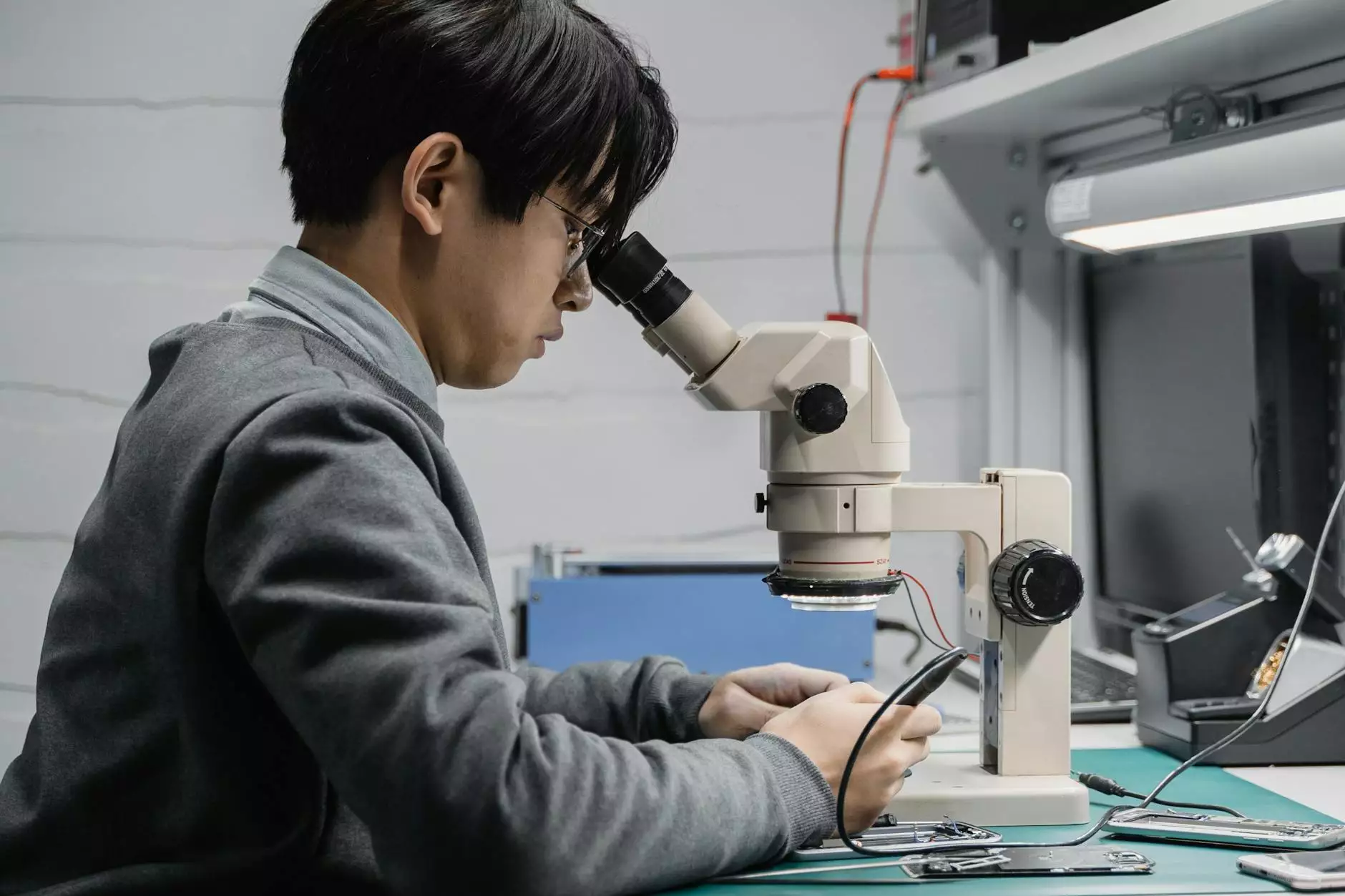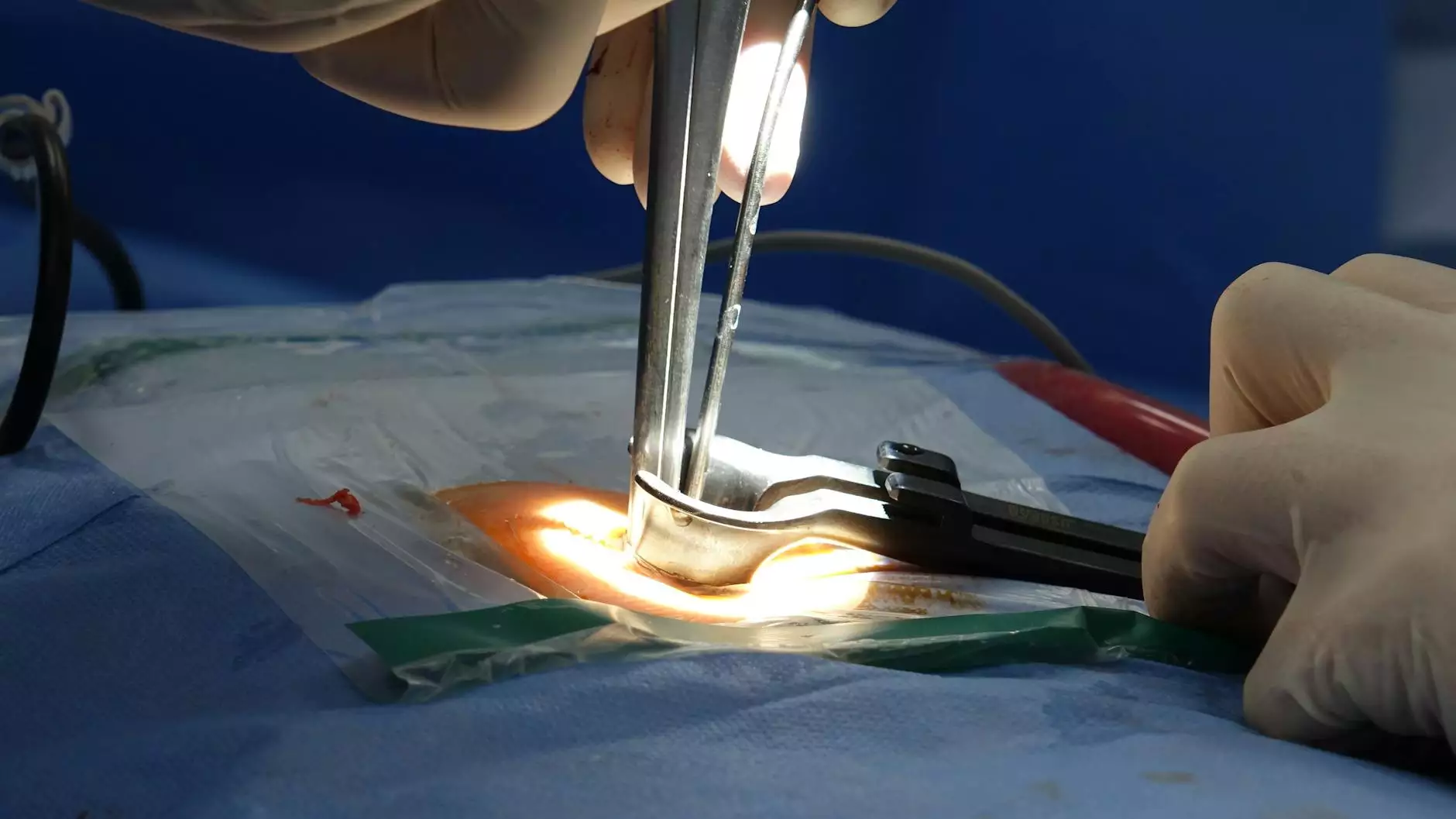Mobile Colonoscopy: Revolutionizing Gastrointestinal Health

The modern healthcare landscape is rapidly evolving, with mobile colonoscopy becoming one of the most innovative advancements in the field of gastrointestinal health. This state-of-the-art service allows patients to receive essential screening in the comfort of their own homes or local community centers. With the increasing prevalence of colorectal cancer, understanding the importance of early detection has never been more crucial. In this article, we will explore the concept of mobile colonoscopy, its numerous benefits, and the overall impact it has on patient care.
Understanding Mobile Colonoscopy
Mobile colonoscopy refers to the provision of colonoscopy services in a non-traditional setting, facilitating a more convenient and accessible experience for patients. This innovation reduces the barriers associated with conventional colonoscopy clinics, such as long waiting times, travel challenges, and anxiety related to hospital environments.
What is a Colonoscopy?
A colonoscopy is a medical procedure that allows doctors to examine the interior lining of the large intestine (colon) and rectum. The procedure involves the use of a flexible tube equipped with a camera and light source, known as a colonoscope, which is inserted through the rectum. The primary objectives of a colonoscopy include:
- Detecting abnormalities, including polyps and cancers.
- Performing biopsies on suspicious lesions.
- Diagnosing gastrointestinal conditions such as Crohn's disease and ulcerative colitis.
- Monitoring the effectiveness of treatments.
The Rise of Mobile Colonoscopy Services
In recent years, there has been a noticeable shift towards patient convenience in the healthcare industry. As patients increasingly demand a more tailored and accessible approach to their healthcare needs, mobile colonoscopy services are addressing those demands effectively. Patients now have the opportunity to receive screening procedures without the associated stress of traditional clinical environments.
Benefits of Mobile Colonoscopy
Mobile colonoscopy offers several key advantages that can significantly improve patient compliance and outcomes. Below are some of the most compelling benefits:
1. Increased Accessibility
One of the most significant benefits of mobile colonoscopy is its ability to reach underserved communities. This service is often provided at community centers, workplaces, and even the patient's home, ensuring that those who might otherwise forgo screening due to logistical challenges are given a unique opportunity to prioritize their health.
2. Enhanced Comfort
Many individuals feel anxious about undergoing traditional colonoscopy procedures due to the institutional environment. Mobile colonoscopy can take place in a familiar setting, making patients feel more comfortable and at ease, which can lead to better patient cooperation and a more successful procedure.
3. Reduced Wait Times
With mobile colonoscopy, patients can often receive their procedures in a timelier manner. This reduces the long wait times typically associated with scheduling appointments at conventional clinics. Quick access to colonoscopy can expedite the diagnosis and treatment of potential issues.
4. Comprehensive Pre-Procedure Education
Mobile colonoscopy teams emphasize patient education before the procedure. They provide guidance on prep diets and explain what to expect during the screening. This thorough approach helps to alleviate concerns and ensures that patients are well-prepared for the procedure.
5. Personalized Care
The mobile unit often includes a team of dedicated healthcare professionals, including physicians, nurses, and technicians who prioritize patient-centered care. This connection fosters a stronger patient-provider relationship, allowing for personalized treatment plans and follow-up consultation.
How Mobile Colonoscopy Works
The process of mobile colonoscopy typically involves several steps, ensuring a seamless experience for the patient:
Step 1: Initial Consultation
Patients begin with an initial consultation, usually via a telehealth platform or phone call, to discuss their medical history and any potential risks associated with the procedure. This conversation also covers any questions or concerns the patient may have.
Step 2: Scheduling the Mobile Visit
Once the consultation is complete, patients can schedule a mobile colonoscopy visit that fits their schedule. The mobile unit arrives at the agreed-upon location, equipped with all necessary medical equipment.
Step 3: Preparation for the Procedure
Before the procedure, patients need to follow specific prep guidelines, including dietary restrictions and bowel preparation. The mobile team provides all instructions, ensuring that patients are fully informed and comfortable with their prep.
Step 4: The Colonoscopy
During the colonoscopy, a healthcare provider will perform the procedure using a colonoscope. The patient is typically given sedation for comfort. The procedure usually lasts about 20 to 30 minutes, depending on the complexity of the examination.
Step 5: Recovery and Follow-Up
After the procedure, patients will have a brief recovery period before discussing the findings with the doctor. Pathology reports can be provided either in person or digitally, and a follow-up appointment will be scheduled if further action is required.
Mobile Colonoscopy Technology
The technology used in mobile colonoscopy is continually evolving, improving not only the patient experience but also the quality of care provided. Here are some technological advancements in the field:
1. High-Definition Imaging
Modern colonoscopes are equipped with high-definition cameras that provide clearer and more detailed images of the colon lining. This advancement increases the likelihood of identifying polyps and abnormalities during the procedure.
2. Advanced Mapping Software
Some mobile colonoscopy units utilize advanced mapping and imaging software to assist in pinpointing areas of concern. This technology can enhance diagnostic capabilities and lead to early intervention.
3. Wireless Technology
Wireless monitoring equipment allows for real-time data transmission during the procedure, enabling providers to access patient information and provide immediate care as needed.
The Future of Mobile Colonoscopy
The future of mobile colonoscopy looks bright, with ongoing innovations poised to enhance the service further. As awareness of the procedure increases, more patients are likely to embrace this option, leading to higher screening rates and better outcomes in colorectal cancer prevention.
Advocating for Awareness
Health organizations and mobile health providers must collaborate to raise awareness about the benefits of mobile colonoscopy. Educational campaigns can inform the public about the importance of regular screenings and how mobile services can help overcome common barriers to accessing care.
Integration with Telehealth
As telehealth becomes increasingly popular, integrating mobile colonoscopy with virtual consultations may allow patients to receive continuous support and monitoring before and after their procedures, further enhancing patient engagement.
Conclusion
In summary, mobile colonoscopy represents a significant advancement in the field of gastrointestinal health, offering greater accessibility, convenience, and personalized care. With the rise of patient-centered approaches in healthcare, mobile services are proving essential in battling colorectal cancer by ensuring that more individuals undergo the necessary screenings.
As the healthcare landscape continues to evolve, embracing innovations like mobile colonoscopy can lead to improved health outcomes, decreased healthcare costs, and a serious reduction in colorectal cancer rates. For those looking to prioritize their health, mobile colonoscopy is an option that provides both comfort and comprehensive care.
For more information about mobile colonoscopy services and to schedule an appointment, visit Odulair's website today.









